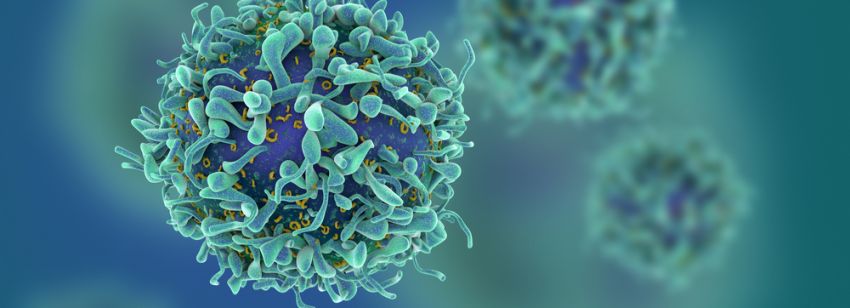Individualized cancer therapy – New model for response to checkpoint inhibitors
Novel cancer immunotherapies have greatly improved the prognosis of many patients. This includes therapy with checkpoint inhibitors in malignant melanoma and bronchial carcinoma. Nonetheless, these therapies have potent adverse effects in a number of patients, which also not experience the expected therapeutic success. For these patients, this means therapy that may do more harm than good and, taking the enormous cost of such therapies into account, high care expenditures without the necessary benefits.
Being able to distinguish between the two groups of patients before treatment - those who respond to and benefit from therapy, as well as those who do not benefit from therapy and / or develop severe adverse events – would result in only patients receiving the therapy, who will have an additional benefit from it. To make this differentiation possible, researchers from the Icahn School of Medicine, Mount Sinai, USA, have developed a mathematical model that they recently published in Nature. They describe the importance of so-called neoantigens, tumor-specific features that are recognized by the immune system, for the therapeutic success of checkpoint inhibitors in general. The more neoantigens a tumor has, the higher the response to checkpoint inhibitors. However, this knowledge alone does not help identify patients who may benefit from therapy. The research group of Benjamin D. Greenbaum models a mathematical dependence of the therapeutic success of a product on two specific parameters of the immune response. These are an amplitude of antigen presentation by wt-MHC-I, a protein complex that processes and presents antigens to immune cells, which can then kill the target cells, and the intrinsic probability of recognition by T cell receptors, through which immune cells identify the right target cells. The researchers apply their model to different patient cohorts with malignant melanoma and bronchial carcinoma, thus proving their suitability.
The identification of the right patient population for advanced therapies is not only relevant to already approved therapies and clinical practice. It is also essential for the development of new therapies, not only in cancer medicine. For drug companies, the clear benefit is that therapies that address the right patients will result in a higher additional benefit of the therapy than from a more generalized patient population and thus provide a better position in price negotiations for the reimbursement of new drugs. Thus, the development towards more specialized and individualized therapies has clear advantages for the patients and the health care system.
BY Prof. Matthias P. Schönermark, M.D., Ph.D., Founder and Managing Director, SKC Beratungsgesellschaft mbH
Read more details here and in the original publication in Nature:
FierceBiotech - Improving cancer immunotherapy by harnessing new technology
Nature - A neoantigen fitness model predicts tumour response to checkpoint blockade immunotherapy
